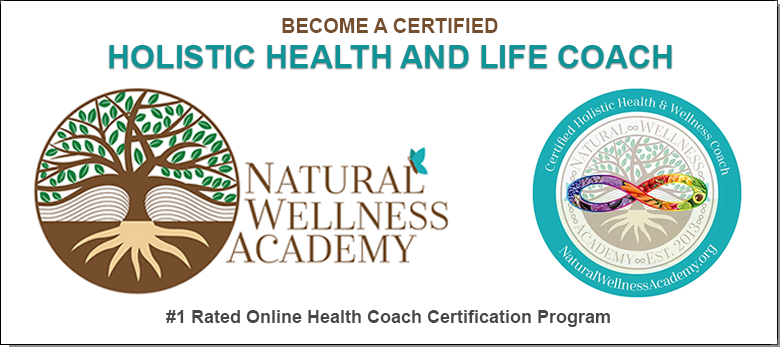
In today’s fast-paced world, the journey toward personal growth can often feel overwhelming. Amidst the myriad of approaches to improving well-being, holistic health coaching stands out as a powerful method that addresses the mind, body, and spirit. By focusing on the interconnectedness of these elements, holistic health coaching offers a comprehensive approach to achieving optimal health and personal development. Here we explore the myriad benefits of holistic health coaching, demonstrating how it can enhance self-awareness, improve physical health, and foster emotional and spiritual growth.
Contents
- Introduction to Holistic Health Coaching and Personal Growth
- Understanding Holistic Health Coaching
- Key Benefits of Holistic Health Coaching
- Holistic Health Coaching Practical Applications and Techniques
- References
Introduction to Holistic Health Coaching and Personal Growth
Holistic health coaching is a dynamic approach to health and wellness that considers the whole person—mind, body, and spirit. Unlike traditional health coaching, which may focus primarily on physical health or specific goals, holistic health coaching aims to create balance and harmony across all areas of an individual’s life. This approach recognizes that true well-being is multifaceted and that lasting change requires addressing various aspects of a person’s lifestyle and mindset.
Definition of Holistic Health Coaching
Holistic health coaching involves guiding individuals toward their health and wellness goals by taking a comprehensive approach that integrates physical, mental, and spiritual health. This method not only emphasizes the importance of nutrition and exercise but also highlights the significance of mental and emotional well-being. By understanding and addressing the root causes of health issues, rather than just treating symptoms, holistic health coaches help individuals achieve lasting and meaningful change.
Explanation of Holistic Approach
The holistic approach to health coaching is grounded in the belief that all aspects of a person’s life are interconnected. This means that physical health cannot be fully optimized without also considering mental, emotional, and spiritual health. A holistic health coach works with clients to identify imbalances and develop personalized strategies that promote overall well-being.
Differentiation from Traditional Health Coaching
While traditional health coaching often focuses on specific areas such as diet, fitness, or habit formation, holistic health coaching takes a broader perspective. It incorporates various practices and disciplines to support the whole person. This might include mindfulness practices, stress management techniques, and exploring personal values and goals in addition to addressing physical health concerns.
Importance of Personal Growth in Holistic Health
Personal growth is a central component of holistic health coaching. By fostering self-awareness and encouraging continuous development, individuals can achieve a higher level of fulfillment and balance in their lives. Holistic health coaching not only helps clients reach their health goals but also supports their overall personal and spiritual growth.
Integrative Perspective on Personal Development
Holistic health coaching promotes an integrative perspective on personal development, which means looking at the bigger picture of an individual’s life. This approach helps clients understand how different aspects of their lives influence each other and how they can create synergy among these elements to enhance their well-being and personal growth.
Relevance in Modern Health and Wellness Trends
In the modern health and wellness landscape, there is a growing recognition of the importance of addressing the whole person. People are increasingly seeking ways to not only improve their physical health but also achieve mental clarity, emotional stability, and spiritual fulfillment. Holistic health coaching aligns perfectly with these trends, offering a comprehensive and balanced approach to personal growth and well-being.
Understanding Holistic Health Coaching
To fully appreciate the benefits of holistic health coaching, it is essential to grasp its core principles and the role of the coach in this dynamic process.
Core Principles of Holistic Health
The foundation of holistic health coaching lies in several key principles that distinguish it from other forms of health coaching. These principles guide the practice and ensure that all aspects of an individual’s well-being are considered.
Mind-Body-Spirit Connection
A central tenet of holistic health coaching is the belief in the interconnectedness of the mind, body, and spirit. This principle recognizes that physical health cannot be isolated from mental and emotional health, nor from spiritual well-being. By acknowledging and addressing these connections, holistic health coaching aims to create a harmonious balance that fosters overall wellness [1].
Emphasis on Lifestyle Changes
Holistic health coaching emphasizes the importance of sustainable lifestyle changes rather than quick fixes. This approach involves making gradual, meaningful adjustments to daily habits and routines that support long-term health and personal growth. Whether it’s adopting a healthier diet, incorporating regular physical activity, or practicing mindfulness, these changes are tailored to fit the individual’s unique needs and goals.
Role of a Holistic Health Coach
A holistic health coach plays a crucial role in guiding and supporting individuals on their journey to better health and personal development. Their expertise and personalized approach make them invaluable partners in this process.
Personalized Health Plans
One of the primary responsibilities of a holistic health coach is to create personalized health plans for their clients. These plans are designed based on a comprehensive assessment of the individual’s physical, mental, and spiritual health. By taking into account the client’s unique circumstances, preferences, and goals, the coach can develop a tailored strategy that promotes overall well-being and addresses specific health concerns.
Guidance and Support Mechanisms
Holistic health coaches provide ongoing guidance and support to their clients. This includes regular check-ins, progress tracking, and adjustments to the health plan as needed. Coaches also offer encouragement and motivation, helping clients stay committed to their goals and overcome any obstacles they may encounter. Through this supportive relationship, clients are empowered to take control of their health and make positive, lasting changes.

Key Benefits of Holistic Health Coaching
Exploring the primary advantages of holistic health coaching reveals how this approach can significantly impact various areas of an individual’s life. From enhancing self-awareness to fostering spiritual growth, the benefits are profound and far-reaching.
Enhanced Self-Awareness
Self-awareness is a critical component of personal growth. Holistic health coaching helps individuals gain a deeper understanding of themselves, their behaviors, and their motivations.
Identifying Personal Strengths and Weaknesses
Through guided reflection and assessment, holistic health coaching enables individuals to identify their personal strengths and weaknesses. This awareness is the first step toward making informed decisions that align with their true selves and long-term goals.
Techniques for Self-Reflection
Coaches employ various techniques to facilitate self-reflection, such as journaling, mindfulness exercises, and exploratory conversations. These practices help clients develop a clearer sense of their values, priorities, and areas for improvement [2].
Improved Physical Health
Physical health is a fundamental aspect of overall well-being. Holistic health coaching provides personalized strategies to enhance physical health through balanced nutrition and exercise.
Tailored Fitness and Nutrition Plans
Holistic health coaches create customized fitness and nutrition plans that cater to the individual needs of their clients. These plans are designed to support optimal physical health and vitality, considering factors like dietary preferences, fitness levels, and health goals.
Integrative Healing Practices
In addition to traditional methods, holistic health coaching incorporates integrative healing practices such as yoga, acupuncture, and herbal remedies. These practices complement conventional treatments and contribute to a more balanced and holistic approach to health.
Mental and Emotional Well-Being
Mental and emotional health are integral to a person’s overall wellness. Holistic health coaching addresses these areas by providing tools and techniques to manage stress and build emotional resilience.
Stress Management Techniques
Effective stress management is a cornerstone of holistic health coaching. Coaches teach clients various techniques to reduce stress, such as breathing exercises, meditation, and time management strategies, helping them maintain emotional balance and clarity.
Building Resilience and Emotional Balance
Holistic health coaching also focuses on building resilience and emotional balance. By developing coping mechanisms and fostering a positive mindset, clients learn to navigate life’s challenges with greater ease and confidence [3].
Spiritual Growth
Spiritual growth is an essential element of holistic health. This aspect of coaching helps individuals connect with their inner selves and explore their higher purpose.
Practices for Spiritual Awareness
Holistic health coaches introduce practices that promote spiritual awareness, such as meditation, prayer, and mindfulness. These practices encourage clients to reflect on their beliefs, values, and life’s purpose.
Connection with Inner Self and Higher Purpose
Through spiritual growth, individuals develop a deeper connection with their inner selves and a clearer sense of their higher purpose. This connection can lead to greater fulfillment, peace, and direction in life.
Holistic Health Coaching Practical Applications and Techniques
Holistic health coaching is not just about understanding concepts; it’s about applying practical techniques that can be integrated into daily life. These applications and techniques are designed to promote overall well-being and foster lasting personal growth.
Mindfulness and Meditation
Mindfulness and meditation are foundational practices in holistic health coaching. These techniques cultivate a state of awareness and presence, contributing to mental and emotional well-being.
Benefits of Regular Practice
Regular mindfulness and meditation practice can lead to numerous benefits, including reduced stress, improved concentration, and enhanced emotional regulation. These practices help individuals stay grounded and present, fostering a sense of calm and clarity in their daily lives.
Simple Techniques to Get Started
For beginners, starting with simple techniques like focused breathing, body scans, or guided meditations can be effective. These exercises require just a few minutes each day and can be easily integrated into a daily routine, gradually building towards a more consistent practice.
Nutrition and Holistic Diet Plans
Nutrition plays a critical role in holistic health. Holistic health coaching emphasizes the importance of a balanced, nutrient-rich diet tailored to an individual’s specific needs and goals.
Understanding Nutritional Needs
Understanding one’s nutritional needs involves recognizing the unique requirements of the body based on factors like age, activity level, health conditions, and personal goals. Holistic health coaches work with clients to identify these needs and create personalized diet plans that support overall health and vitality.
Examples of Holistic Meal Plans
Holistic meal plans often include a variety of whole foods, such as fruits, vegetables, lean proteins, and whole grains. Examples might be a balanced breakfast of oatmeal with fresh berries and nuts, a lunch of quinoa salad with mixed greens and grilled chicken, or a dinner featuring roasted vegetables and salmon. These meals are designed to nourish the body and promote sustained energy throughout the day [4].
Physical Activity and Movement
Physical activity is essential for maintaining physical health and enhancing overall well-being. Holistic health coaching incorporates diverse forms of movement to support fitness and health.
Importance of Regular Exercise
Regular exercise is crucial for cardiovascular health, muscular strength, flexibility, and mental health. It helps in managing weight, reducing the risk of chronic diseases, and improving mood and energy levels. Holistic health coaches emphasize the importance of finding enjoyable and sustainable forms of exercise.
Integrative Fitness Routines
Integrative fitness routines combine different types of physical activities to create a balanced approach to fitness. This might include a mix of aerobic exercises, strength training, yoga, and stretching. For example, a weekly routine could involve jogging, weight lifting sessions, yoga classes, and stretching exercises, ensuring all aspects of physical health are addressed.
Emotional and Mental Health Strategies
Addressing emotional and mental health is a key component of holistic health coaching. Effective strategies help manage stress, build resilience, and maintain emotional balance.
Cognitive Behavioral Techniques
Cognitive behavioral techniques (CBT) are used to identify and change negative thought patterns and behaviors. These techniques can include practices such as cognitive restructuring, which involves challenging and reframing negative thoughts, and behavioral activation, which encourages engagement in positive activities to improve mood and reduce stress.
Journaling and Reflective Practices
Journaling and reflective practices provide a way to process emotions and thoughts, gain insights, and set intentions. Keeping a daily journal can help individuals track their progress, reflect on their experiences, and identify patterns in their behavior and emotions. Reflective practices such as writing about gratitude or setting daily intentions can also promote mental and emotional well-being.
References
[1] Elevating Your Health: A Holistic Approach to Self-Improvement
[2] Holistic Personal Development for Meaningful Engagement
[3] A Holistic Approach To Self-Improvement: How Personal Well-Being and Appearance Can Contribute To a Happier Life
[4] Holistic Approaches to Well-Being and Health

